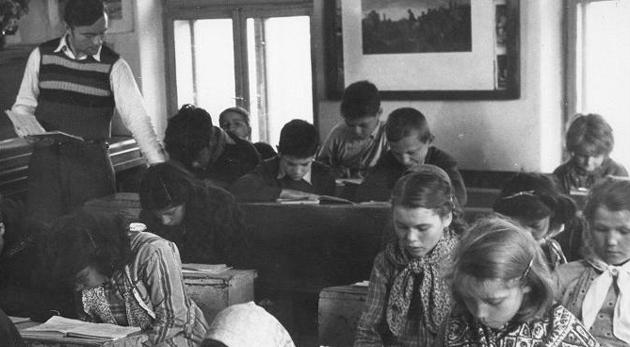Documentary film review: "Suppressed Letters", about a Czechoslovak experiment with Romani children

On 9 April, Czech Television broadcast the documentary film "Zatajené dopisy" ("Suppressed Letters"), which premiered at this year’s One World Film Festival in Prague. In the film, director Tomáš Kudrna reveals the history of the so-called Květušínský experiment, which took place 65 years ago.
What began as the voluntary residency of children at a boarding school later became the courts ordering children removed from their parents and completely breaking off all contact between them. The film is based on the thesis work of Romani Studies scholar Bára Šebová, who has reconstructed what was called the "School of Peace" based on the journals of teacher Miroslav Dědič and oral histories collected from others involved with the school.
Dědič, the main designer of this experiment, was motivated by a desire to prove to what was then a socialist society that Romani people are educable – as long as the influence of their Romani upbringing is eliminated. He called the children who had been removed from their parents "material for our workshop on humanity".
In the spirit of the slogan "everything for the idea", Dědič did not hesitate to use both physical and psychological violence, which meant censoring, falsifying or suppressing correspondence between the children and their parents, using bureaucratic tactics to prevent parents from visiting (the school was located in the Boletice military area, which required official permission to enter), and even punching one mother in the face when she was defending the children who did not want to leave her side. The film has been well-received by festival-goers and the press, who have welcomed its presentation of this topic.
Audiences today identify with the conclusion of the film, which is that it is unacceptable to prevent children from being in contact with their parents, even for ostensibly noble reasons. However, we never receive a crucial answer to the question of why such a gifted teacher – someone who stood up for the children of the Sudeten Germans during his postwar educational work in the Krušné hory area, someone who had personal knowledge of the tragic fate of his Jewish schoolmates, and someone who also personally experienced the communist regime’s repression of its own friends – ultimately turned to this violent educational approach.
Most responses to the film indicate that it is leaving us with more questions than answers. It is not intended as a confrontation, although the complexity and seriousness of the topic would have made that appropriate.
After all, when the 90-year-old respected educator is telling a story that, for propaganda reasons, he edited back in the 1950s already, it would be appropriate to have someone in the film opposing "his truth" at that moment. A viewer who is not protected from these lies – which, moreover, are linked in the memory of the older generation to some impressive precedents (such as the book written by school founder Josef Pohl called "On the Gypsy Trail" – "Na cikánské stezce" or the film by Dušan Klein called "Whoever is Afraid Runs Away" – "Kdo se bojí, utíká", both on the same motifs) – will easily form a mistaken opinion of these events.
The film’s counterpart to this legacy, and the viewer’s guide, is Karolína Miesbauerová, who at just 10 years old is the granddaughter of a pupil involved in the Květušínský experiment, and who is augmented in this role by researcher Bára Šebová. The researcher, of course, would be able to confront the teacher with the conclusions of her own research, but to do so by answering an inquisitive child’s questions is almost impossible.
In the film, Šebová must adjust and filter reality so the child can understand it. The viewers of this documentary, however, are not children.
The former pupils of the school who are interviewed find themselves in the position of children in a divorce proceedings – they have to decide whether they want "to be with Mom or with Dad." At first glance it might seem that nostalgia for the days of their childhood friendships and gratitude toward the teachers who liked them and prepared them for life in Czech society might triumph over their aggrieved, painful recollections of their parents, especially since they may have believed their entire lives that their parents never really cared about them.
The choice of interviewees who can remember the school, moreover, is a misleading one, as the filmmakers did not succeed in contacting anyone who might have been able to criticize it. Last but not least, the parents of the children are only able to defend themselves through quotations from the letters that were never delivered to their children.
I would give Kudrna an unlimited budget so he could afford to record Romani people’s recollections of the war instead of just filming moody shots of the abandoned landscape of the Šumava National Park. Viewers should be shown what they are unable or unwilling to imagine, namely, images of the suffering that Romani people in Slovakia were subjected to for more than six years.
That was a time of daily fear for one’s life, which was spent hiding in the forests, a time of being abused (if not killed) by Germans and Slovaks, and a time of hunger that lasted long after the war ended. Without acknowledging the context of that era, we cannot understand either the Romani people who came to Bohemia for a better life after the war, nor the convictions of the 26-year-old Dědič, whose life experience, marked as it was by the war, was still not enough to help him understand Romani people.